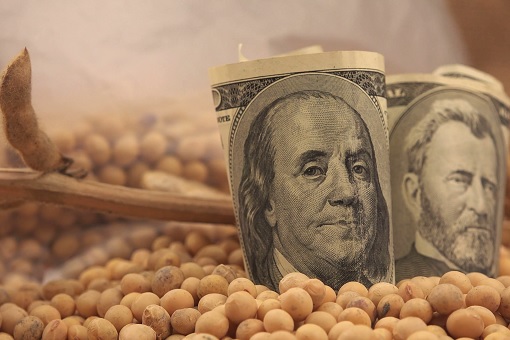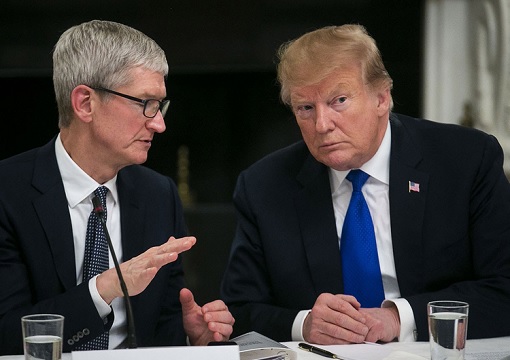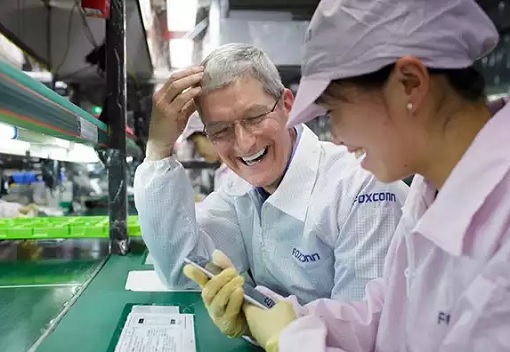Whenever Donald Trump talks to his supporters, he would claim credit in his trade war with China. He repeatedly declared that his import tariffs on Chinese goods would force China to pay “US$100 billion” to the U.S. Treasury. The Chinese, not the Americans, was footing the bill for the tariffs he introduced to punish China, says the U.S. president.
On Sunday, White House trade adviser Peter Navarro parroted the same song – the tariffs are not impacting American businesses or consumers and China alone is bearing their full cost. When he was asked about the farmers being hurt as a result of the trade war, Navarro claimed that tons of the tariff money taken from the Chinese is going right to the “American farmers”.
But Deere, the agricultural equipment company, reported earnings that missed the Wall Street estimates. And even though the Trump administration is expected to begin paying US$14.5 billion to farmers hurt by the US-China trade war by the end of August, Lindsay Greiner, the president of the Iowa Soybean Association, has said that government subsidies are a “poor remedy for trade.”

Greiner said – “Short-term, stair-stepped subsidies are a poor remedy for trade. They stimulate production but not sales and therefore do little to undo the long-term log jam caused by not selling soybeans to destinations like China, the world’s No. 1 customer.” But the burning question remains – is it true that the U.S. businesses do not pay a penny on the tariffs?
The answer can be found from none other than Trump. As Navarro tried his best to cover up for his boss, the president appeared to have accidentally confessed that American businesses and consumers do pay the tariffs after all. Trump revealed that over a dinner with Apple’s CEO, they talked about tariffs and Apple’s South Korean competitor Samsung.
Trump said Cook “made a very compelling argument” that tariffs are making it hard for Apple to compete with companies like Samsung. The president agreed that it would be difficult for Apple to pay tariffs, when Samsung does not face the same hurdle because much of its manufacturing is in South Korea. He said – “It’s tough for Apple to pay tariffs if it’s competing with a very good company that’s not.”

Obviously, Trump’s erratic and inconsistent statement shows that not only he has been lying to his supporters; it also proves that the Americans – businesses and consumers – are the one paying the tariffs imposed by their president to the U.S. government. The only concern Apple is having after the latest tariff is whether they should absorb it or pass it to the consumers.
Trump has ordered 10% tariff on an additional US$300 billion in goods imported from China, which would include smartphones, laptops and toys, Initially, all of those tariffs were scheduled to go into effect on September 1, but Trump stunningly delayed some of the import duties until December 15 over concerns about how they would impact the holiday shopping season.
Most of Apple’s products are assembled in China and hence, will be subject to an additional 10% import tax later this year. The products that are due to go into effect on September 1 include products like the Apple Watch and AirPods, while the iPhone, iPad, and MacBook won’t be hit until December 15, after a delay to accommodate the holiday season.

On Friday, as usual, Trump blew his trumpet, saying that “the longer the trade war goes on, the weaker China gets and the stronger we get.” Amusingly, on the same day, a new report released by the New York Federal Reserve found some businesses and manufacturing leaders said the trade war is increasing prices and reducing their profits when compared to a year ago.
According to the survey, 79% of manufacturers and 60% of service firms said that recent increases in tariffs have raised input costs at least slightly. However, 14% of manufacturers and 12% of service firms said that the increases were substantial. More importantly, while data shows that while US consumer confidence is generally healthy, it is also showing signs of deteriorating.
Other Articles That May Interest You …
- It’s Not Over Yet – Promised To Take The Necessary Countermeasure, China Could Target The U.S. Oil
- Trump Blinked Again – Postponed Tariffs On $300 Billion Chinese Goods Under The Pretext Of Saving Christmas
- China Strikes Back!! – Trade War Becomes Currency War After Suspends U.S. Agricultural Goods & Devalues Currency
- Economists Thought China’s Economy Depends On The World – But McKinsey Research Shows Otherwise
- What Trump Doesn’t Want His Supporters To Know – China Lowered Tariffs To Everyone Except The U.S.
- China’s New Message To The U.S. – “Negotiate – Sure!”, “Fight – Anytime!”, “Bully Us – Dream On!”
- Forget OPEC – These 3 Powerful Men Will Determine & Control The World Oil Prices
- China Reveals Strategy To Fight U.S. Trade War – Stop Buying American Debt

|
|
August 21st, 2019 by financetwitter
|


|

|

|

|

|

|




























Comments
Add your comment now.
Leave a Reply